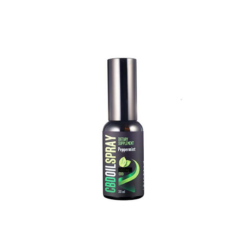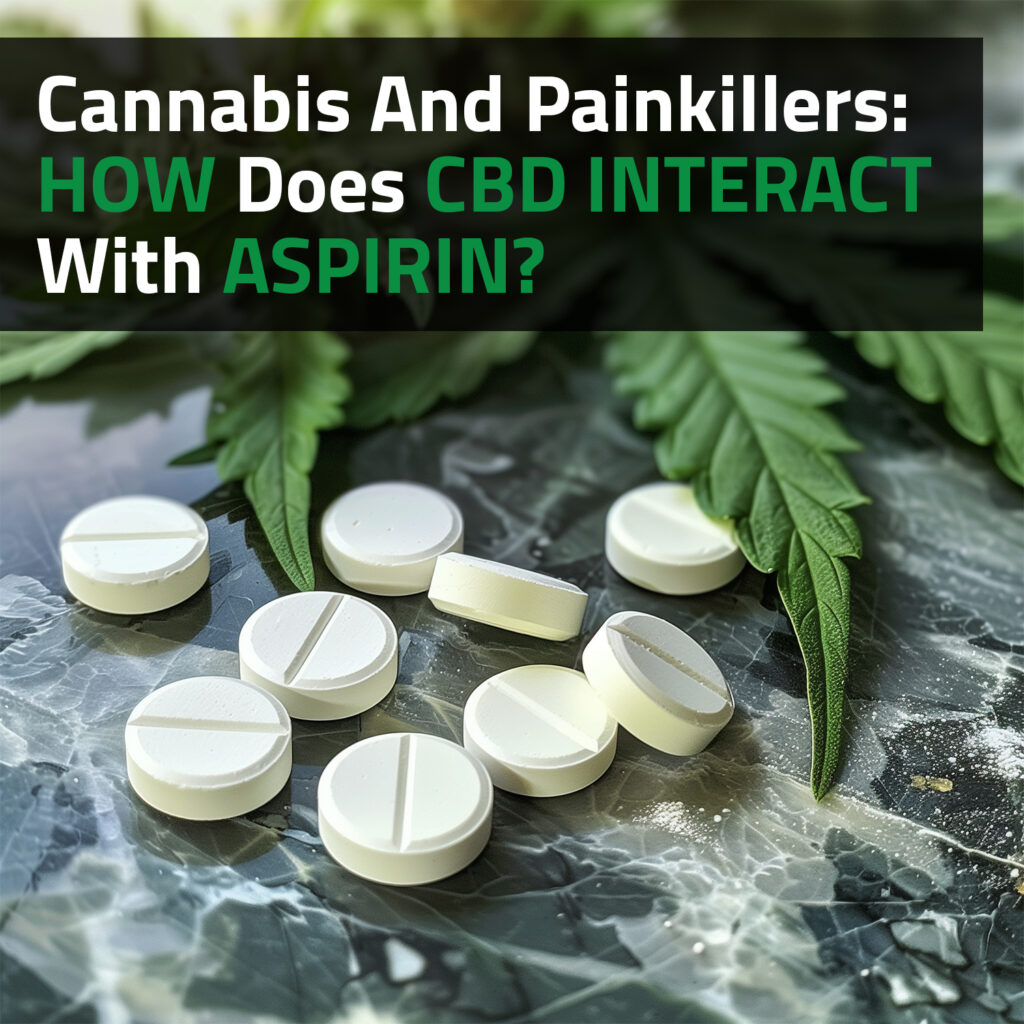The rise of cannabis-derived products, particularly cannabidiol (CBD), has sparked curiosity about how these compounds interact with conventional medications. Aspirin, a widely used over-the-counter pain reliever, is one of the most common medications people wonder about when exploring the potential benefits of CBD. While both CBD and aspirin can provide relief from pain and inflammation, their combined use raises questions about safety, efficacy, and potential risks. In this article, we will delve into how CBD works, the role of aspirin as a pain reliever, and what happens when these two substances interact in the body.
Understanding CBD: How It Works In the Body
CBD is one of the primary cannabinoids found in cannabis plants. Unlike tetrahydrocannabinol (THC), CBD is non-psychoactive, meaning it does not produce a “high.” Instead, CBD interacts with the body’s endocannabinoid system (ECS), which plays a crucial role in regulating various physiological processes, including pain, inflammation, and mood.
Recommended products
-
Brutal CBD – Berry Apple Juice
R195.00 – R380.00 -
Green Angel CBD Vegan Chocolate
R85.00 -
Reakiro – Broad Spectrum CBD Oil Mouth Spray – Peppermint
R499.00 – R799.00 -
Zootly CBD Bon Bons (50mg)
R70.00
CBD And Inflammation
CBD is renowned for its anti-inflammatory properties. It achieves this by influencing the activity of receptors in the ECS, such as CB1 and CB2 receptors, as well as interacting with non-cannabinoid receptors like TRPV1, which is involved in pain signaling. By reducing inflammation, CBD can help alleviate pain associated with conditions like arthritis, migraines, or muscle soreness.
CBD As A Natural Alternative
For individuals seeking natural remedies, CBD offers a promising alternative to traditional painkillers. However, it is essential to consider how it might interact with other medications you are taking – especially those that affect inflammation, like aspirin.
The Role Of Aspirin In Pain And Inflammation
Aspirin belongs to a class of drugs called nonsteroidal anti-inflammatory drugs (NSAIDs). It’s commonly used to reduce pain, inflammation, and fever. Aspirin also has blood-thinning properties, making it effective in preventing blood clots and reducing the risk of heart attacks and strokes.
How Aspirin Works
Aspirin inhibits the production of prostaglandins, which are hormone-like substances that promote inflammation, pain, and fever. It does this by blocking enzymes known as COX-1 and COX-2 (cyclooxygenase). By reducing prostaglandin levels, aspirin not only relieves pain but also minimizes inflammation in the affected areas.
Aspirin’s Risks
While aspirin is generally safe when used as directed, it is not without risks. Common side effects include gastrointestinal irritation, ulcers, and an increased risk of bleeding due to its blood-thinning effects. These risks are important to consider when combining aspirin with other substances, including CBD.
CBD And Aspirin: Potential Interactions
When combining CBD with aspirin, it’s important to understand how each substance affects the body, particularly in areas where their actions might overlap.
Blood-Thinning Effects
Both CBD and aspirin can influence blood clotting, albeit in different ways. Aspirin’s blood-thinning properties are well-documented, and CBD may also affect clotting by inhibiting cytochrome P450 enzymes in the liver. These enzymes play a key role in metabolising many medications, including blood thinners. When CBD inhibits these enzymes, it can potentially increase the blood-thinning effects of aspirin, raising the risk of excessive bleeding.
Anti-Inflammatory Synergy
Both CBD and aspirin have anti-inflammatory properties, which could theoretically enhance their combined effectiveness in reducing pain and inflammation. However, this synergy is not without potential risks, as the overlap may also amplify side effects like stomach irritation or an increased risk of bleeding.
Gastrointestinal Concerns
Aspirin is known to irritate the stomach lining, especially with prolonged use. While CBD is generally well-tolerated, high doses may cause mild digestive issues like diarrhea or nausea in some individuals. When used together, these effects could potentially compound, leading to discomfort or gastrointestinal distress.
Is It Safe To Combine CBD And Aspirin?
The safety of combining CBD and aspirin largely depends on individual factors such as dosage, medical history, and existing health conditions. While there is limited research specifically on CBD and aspirin interactions, general guidelines can help you navigate this combination safely.
Who Should Avoid Combining CBD And Aspirin?
- Individuals with bleeding disorders: Since both substances can affect blood clotting, combining them may not be suitable for those with conditions like hemophilia or low platelet counts.
- People taking other medications: If you’re on other blood thinners or medications metabolized by the liver, combining CBD and aspirin could increase the risk of drug interactions.
- Those prone to stomach issues: Individuals with a history of ulcers or gastrointestinal bleeding should exercise caution due to aspirin’s potential to irritate the stomach lining.
Start Low And Monitor Closely
If you are considering using CBD alongside aspirin, it’s crucial to start with a low dose of CBD and monitor how your body reacts. Always consult a healthcare professional to discuss your specific situation and ensure the combination is safe for you.
Potential Benefits Of Combining CBD And Aspirin
When used responsibly, combining CBD and aspirin may offer enhanced benefits for managing pain and inflammation.
Chronic Pain Relief
For individuals dealing with chronic pain conditions like arthritis or migraines, the anti-inflammatory properties of both CBD and aspirin could provide significant relief. Aspirin works quickly to reduce acute pain, while CBD may offer longer-lasting benefits by modulating the body’s inflammatory response.
Cardiovascular Health
CBD has been studied for its potential to reduce blood pressure and improve heart health, while aspirin’s role in preventing heart attacks and strokes is well-established. Together, they may offer complementary benefits for individuals with cardiovascular concerns, though caution is advised due to the risk of excessive bleeding.
Tips For Safe Use
If you are considering combining CBD and aspirin, follow these tips to minimise risks and maximise benefits:
- Consult a healthcare professional: Talk to your doctor before combining CBD with aspirin, especially if you’re taking other medications or have underlying health conditions.
- Start with a low dose: Begin with a small dose of CBD to see how your body reacts before increasing the amount.
- Monitor for side effects: Keep an eye out for signs of digestive discomfort or unusual side effects, and seek medical attention if needed.
- Choose high-quality CBD products: Purchasing quality CBD products ensures purity and avoids contaminants that could interfere with your health.
CBD and aspirin each offer unique benefits for pain relief and inflammation management, and their combination has the potential to enhance these effects. However, this combination also comes with risks, particularly related to gastrointestinal health. By understanding how these substances interact and consulting with a healthcare professional, you can make informed decisions about incorporating CBD and aspirin into your wellness routine.
As the research on CBD and its interactions with medications continues to grow, we will gain a clearer understanding of how to use these substances safely and effectively. Until then, proceed with caution, prioritise your health, and enjoy the potential benefits that cannabis-derived CBD can bring to your pain management toolkit.










